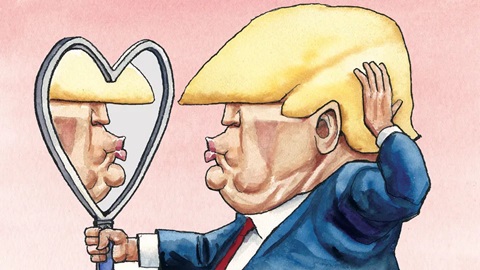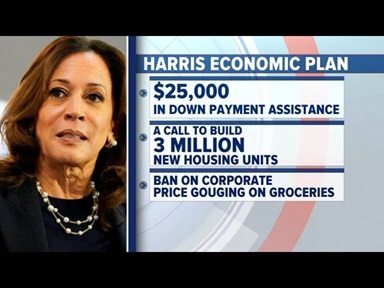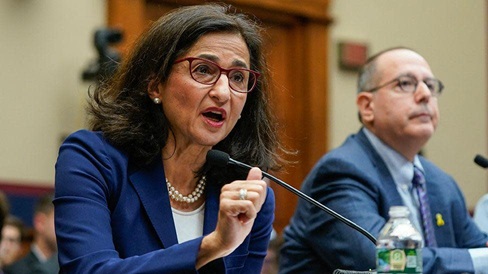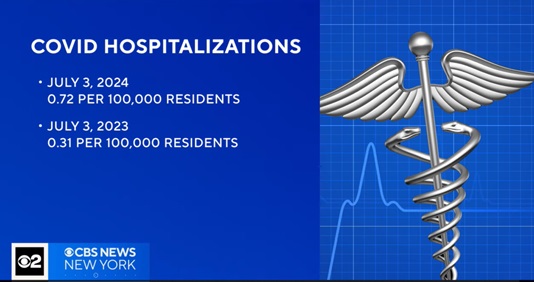Dear Commons Community,
The Democratic National Convention is about to get underway today after a month in which the party rallied around Vice President Harris as the presumptive presidential nominee.
It’s a convention few were anticipating a month ago, when President Biden was the expected nominee. Since then, Biden has dropped out of the race and endorsed Harris.
The party and Democratic voters have seemed to swing overwhelmingly behind Harris since she stepped up to replace Biden.
Today all eyes will be on Chicago to see if the Democratic convention can help spur on her momentum.
Below are five things to watch for courtesy of The Hill.
Tony
————————————————————–
How disruptive are the protests?
Some level of protest activity is typical for the parties’ nominating conventions, as they often attract those most passionate in favor and opposed to a party or specific candidate.
But more attention than normal has been paid to potential protest activity throughout the convention amid a split in the party over the Israel-Hamas war and the Biden administration’s handling of the conflict. The split was most prominently on display through a protest vote that occurred during the Democratic primaries.
Although Biden did not have serious competition for the nomination, some Democratic voters rallied around an effort to vote for an “uncommitted” option in protest of Biden’s support for Israel.
Harris may have an easier time distancing herself from Biden’s record and entrenched feelings about his handling of the conflict, but she also has faced pressure from pro-Palestinian protesters in the weeks since she entered the race.
A few protests have already been scheduled throughout the week, some near the United Center, where the convention will take place. Chicago Mayor Brandon Johnson and other Democratic officials have expressed confidence that the party will be able to have an orderly convention and respect people’s right to protest.
Hanging over the event is the chaos of the 1968 Democratic convention in Chicago, when anti-Vietnam War protesters were beaten by police. Democrats went on to lose that presidential election, when then-President Johnson dropped out of the race and his vice president, Hubert Humphrey, became the Democratic nominee.
How does Harris do?
Harris has quickly coalesced Democratic support behind her candidacy.
Just more than one day after launching her bid, enough delegates had publicly declared their support to make her the likely nominee. Other Democrats who might have been rivals, along with top party leaders, backed her as the nominee.
Harris’s rise has been quite impressive for a vice president who at one time was viewed as a possible drag on the ticket because of her formerly poor approval ratings.
Her address accepting the presidential nomination scheduled for Thursday will be the pinnacle of the nominating process that began months ago. It will also serve as an opportunity to share her vision with a national audience.
Advertisement
Over the past few weeks, Harris has spoken to sold-out crowds across the country. Thursday’s address, and the convention in its entirety, is an opportunity for her to get her message out to an even larger audience at a time when the political spotlight will be fully on her.
Do Democrats stay on script?
The exact speaking schedule for the convention has yet to be released, but most major party leaders are expected to appear.
Biden is set to help kick off the convention with a speech Monday night, while former President Obama, former President Clinton and former Secretary of State Hillary Clinton are also expected to speak. Vice presidential candidate Tim Walz, the governor of Minnesota, is expected to formally accept his nomination in a speech Wednesday, and Harris will address the convention Thursday.
These types of speeches are almost always planned down to the word in advance, allowing speakers to stay on script and message when all eyes are on them. But that doesn’t stop them from ad-libbing in the moment, either on their own accord or in response to a chant from the crowd.
Those moments could provide huge sparks for Harris, though they can also be dangerous.
The speakers at the convention will almost certainly have some zingers designed to go after former President Trump and Republicans and declare their position on certain issues. But a spontaneous moment might also prove memorable and carry beyond the convention.
How do the speakers address the Israel-Hamas war?
Harris has a bit of distance from Biden on the war as she was not the one making decisions on aid and weaponry. But that doesn’t mean she is entirely out of the woods with disgruntled Democrats who want policy shifts on Israel.
Members of the Uncommitted National Movement have expressed hope that Harris’s candidacy could signal that shift. She said at a rally in Arizona this month that “now is the time” for a deal that frees the hostages held in Gaza and achieves a cease-fire.
But groups like the Abandon Biden Campaign have said they see Biden’s and Harris’s policies as essentially the same.
The convention could be an opportunity to bring these Democrats back into the fold. Democrats hoped to do that in 2016 after a fierce primary between Hillary Clinton and Sen. Bernie Sanders (I-Vt.) exposed rifts in the party, but those tensions lingered through November.
Addressing the war in a way that does not alienate Democrats on either side could be key to ensuring the party stays unified.
Are there any big surprises?
Nominating conventions are among the most well-choreographed events in politics, with every speech and the roll-call nomination vote planned in great detail. But that doesn’t mean unexpected developments never happen.
Protests are scheduled for outside and aren’t supposed to get into the arena, but some could find their way into the United Center. A handful of uncommitted delegates will be present at the convention, and they could create waves over the war.
On the other side of the spectrum, a surprise appearance from an unannounced guest could spark further enthusiasm among attendees and supporters watching at home.












